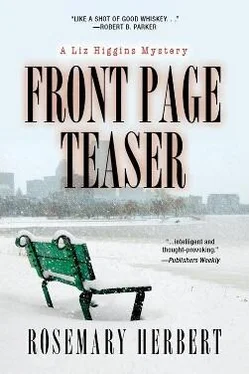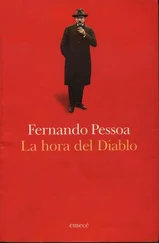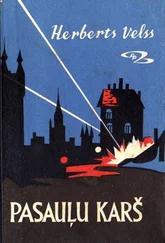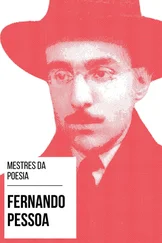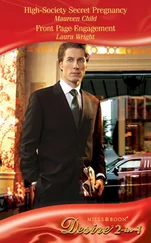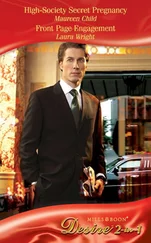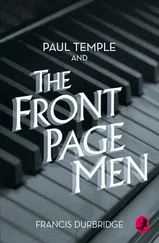Manning was nowhere to be seen.
Thanks to the television spot—and to ongoing problems for the basketball star—Liz was granted another day to work on the missing mom case while Dick set his sights on the hoop star’s lawyer. Although she had not succeeded in having anyone else smooth the way toward an interview with Ellen’s mother, she made a call to the Wellesley telephone number Laura Winters had provided to her. A male voice answered and repeated her name aloud. Was it a police officer or male relative screening calls for Mrs. Swenson?
Apparently, Veronica was within ear range. “Liz! Liz! I want to talk to her. She said she would find Mommy. I want to know if she found her! I want to talk to Liz!”
Olga Swenson came on the line.
“What do you want with us?” she asked. “I’m not talking to the press.”
“It’s my hope you will consider talking with me, off the record if you insist. The more I know about your daughter, the more I can do to find her.”
“My son-in-law talked to your paper and they made him appear to be a man looking for an alibi. In fact, wasn’t your name on that piece?”
“My colleague wrote that piece, using some quotes I supplied. But he cut short your son’s remark about wishing he had stayed home. I know that made Erik look suspicious. I apologize.”
“It’s bad enough that they always think the husband did it, without the newspapers adding fuel to the fire. But I saw in the paper today that you got the whole story about those car salesmen. You were more thorough than the World ’s reporter.”
“Thank you, Mrs. Swenson. I have an advantage: I know Ellen and Veronica enough to care about finding the whole truth.”
Olga Swenson said nothing.
Liz waited out the silence.
“Please, Grandma!” Veronica said at a distance.
“Let’s go find Hershey,” a voice in the background said, apparently succeeding in leading Veronica away.
“I always walk my dog along the shores of Lake Waban at around one-thirty p.m. If you park at the Wellesley College Faculty Club and walk west around the lakeshore, you’ll see me. If you bring anyone else, I won’t talk. No notebook. No recorder, either. I caution you, my dog can be protective.”
Liz wanted desperately to ask Olga Swenson to bring a hairbrush or personal item of Ellen’s to their rendezvous. But, fearing the request for a source of DNA would turn off the woman altogether, she said only, “Thank you, Mrs. Swenson. You can count on me.”
Next, Liz dialed up her voice mail. It was full of messages from public relations people trying to get attention for authors coming to town, community group events, and the like. Nothing useful. Liz’s ATEX machine held only internal messages. Nonetheless, she looked them over. Again, nothing germane to the Johansson case.
It was a thorn in the side of most Banner staffers that they did not have PCs at their desks. Consequently, they also did not have e-mail access unless they worked on a PC in the Banner ’s photo library. It was a place filled with battered filing cabinets—topped with brave and dusty philodendrons and filled with photos—arranged in a backward, right-to-left alphabetical order around the room. Some of the file drawers were made more noticeable by cutouts of notables—ranging from dead presidents to Miss Piggy—pasted or taped on them.
Since the PC was in demand more often than not, staffers had to take turns using it. Such was the case this time, too, as an editorial assistant from the sports department was using the machine to call up statistics—and perhaps look for former faux pas—regarding the troubled basketball star. Probably, he was compiling the information for Manning. Liz stormed out of the library and headed for the photo department. There she picked up the manila envelope DeZona had left for her in his cubbyhole.
Liz retraced her steps to the library, where the PC was unoccupied at last. She put in her password and called up a long list of e-mail messages. Like her voice mail, most of the messages were from PR people. She ignored all but a few. Beginning with addresses she did not recognize, she opened a message that turned out to be an ad for printer cartridges, then one from a self-proclaimed expert on astrology, and finally a one-word message from an e-mail address she did not recognize. “Blister,” it read.
Perplexed, Liz moved on to the next message from kinnarddoc@northeastern.edu: “Poinsettia productive. Need sample for comparison. Tir Na Nog tonite at 7?—CK”
It was clear the message was from Cormac Kinnaird. But what was ‘Tir Na Nog’? Liz returned to her desk and picked up the Boston Area phone book. Sure enough, Tir Na Nog was listed at an address in Somerville. She dialed the number. It was not yet open at eleven in the morning, but a recorded message revealed it was an Irish pub. “Why didn’t I think of inputting the pub name on the Internet?” Liz scolded herself. Without ready access to the system, such Internet use simply didn’t occur to her.
Liz returned to the library to reply to Cormac Kinnaird’s e-mail message. The PC was occupied.
“What else is new?” she asked herself as she sat down at a small table and opened the envelope of photos. The first few pictures were of Veronica and Erik selecting, sawing down, and dragging away a tree at a Christmas tree farm. The next handful were of New York City street scenes, including a shot of traffic passing by a large building, a photo of a chestnut vendor and newsstand, a much better-framed shot of Ellen standing in a city street with a skyscraper completely filling the background. Then there was an indoor shot showing a restaurant table with a chic woman seated at it and another shot of the same woman and Ellen raising their glasses in a toast. Finally, there was a photo of the two women dwarfed by a large, globe-shaped sculpture, and another of the two carrying shopping bags, standing before one of the lion statues at the New York Public Library.
There was also an enlargement from one of René’s photos taken in the Johanssons’ kitchen. What Liz saw in it caused her to ask the editorial assistant using the PC if she’d be done with the machine soon. This was a break in protocol. By unspoken agreement, reporters did not hound one another here, since they all could appreciate how much time had been spent—and wasted—in waiting for a turn to look at e-mail or to use the Internet.
But even inconveniences can sometimes turn out to be opportunities in disguise. Liz took the time to make a Xerox copy of Ellen’s taxi receipt. Placing the original in one of the Banner ’s business envelopes and placing that in her purse, she used scissors to trim down the copy to the same size as the original. Then she crumpled it a little bit and flattened it out again, and stored it in the manila envelope with the photos.
Fortunately, Liz soon had her chance to reply to Kinnaird’s message. “Tir Na Nog at 7 looks fine,” she wrote. Then she stopped by the city desk, let Jared Conneely know she would be out on assignment, and made her way downstairs, along the inky hall and into the snow-heaped parking lot.
The snow there was filthy, but once Liz was out of town driving west along Route 16, the white stuff did a great deal to beautify the roadside landscape. It also became deeper as Liz put more miles between herself and Boston. After passing through part of the Wellesley business area, she saw children sledding down large hills on her left. The timeless scene made her think of Veronica, who had asked one of the Santas she had evaluated to bring her a toboggan. Then the Wellesley College campus entrance appeared on her right. Turning in at the gate, she noticed that the faculty club was immediately on her left. She was so early for her appointment that she went inside, looking for lunch. When it became clear Liz had no faculty I.D. card, the maitre d’ made his disapproval evident, but when Liz showed her press card and she said she was on assignment on campus, she was shown to a seat near the kitchen.
Читать дальше
